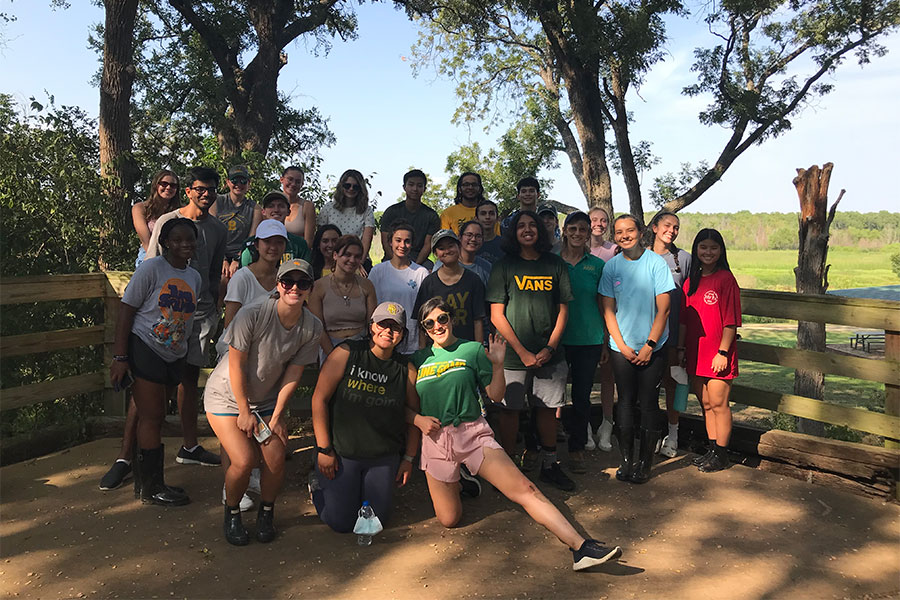“BEARS-in-the SEA” Discover Bacteriophage from the Waco Wetlands

First year Baylor SEA-PHAGES (Science Education Alliance-Phage Hunters Advancing Genomics and Evolutionary Science) biology students have been discovering and characterizing viruses that infect bacteria (bacteriophage) since 2010. The 2021-2022 cohort recently published a complete genome annotation of Arthrobacter phage Albanese in GenBank, adding to the over 30 complete genome annotations completed by first-year Baylor students. This virus (which Juli Watkins, Michaela Sinclair, and Hayley Epps named Albanese after a favorite type of gummy worm) was isolated from a soil sample collected by the students from cell 1 of the Waco Wetlands. Using bioinformatic tools to explore the genomic sequence, students predicted 61 genes and 28 potential proteins with known functions. This discovery illustrates how little is really known about what is going on in the soil. Understanding the diversity of viruses and their interactions in the soil will shed light in this area. Phage proteins and processes have also proven to be essential for many areas of molecular biology research, from the discovery of the genetic code to the process of gene editing using CRISPR. Through early immersion in authentic and valuable research in viral diversity and phage genomics, students are learning the process of science and the value of science to the world